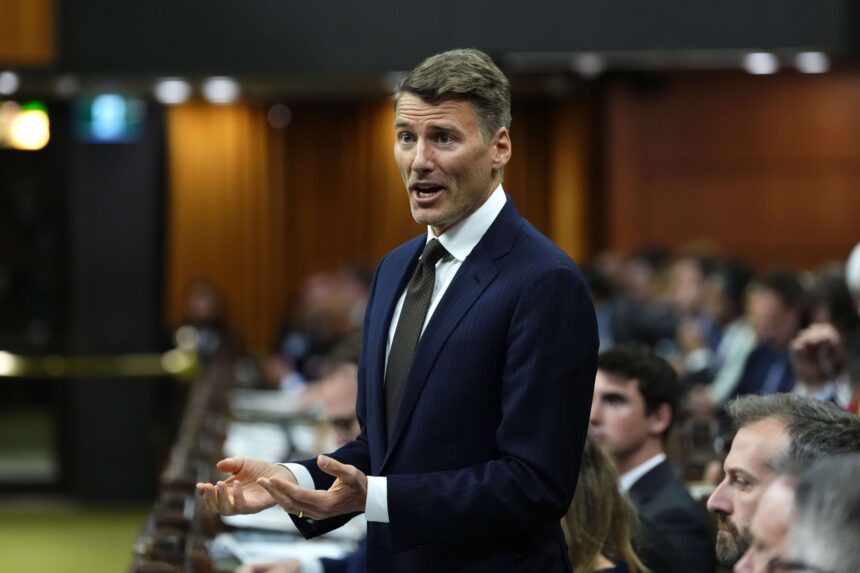The federal government’s silence on Toronto’s apparent violation of a major housing agreement has sparked concerns among affordable housing advocates and policy experts across the city.
At issue is the $500 million Housing Accelerator Fund agreement signed last November between Toronto and Ottawa, which committed the city to implement specific housing reforms in exchange for the federal funding. Recent reports indicate several key commitments remain unfulfilled, yet federal officials have declined to enforce compliance measures.
“What we’re seeing is troubling on multiple levels,” says Cherise Wong, housing policy director at the Toronto Community Housing Coalition. “When agreements between different levels of government aren’t enforced, it’s ultimately the people who need affordable housing who suffer.”
According to city documents obtained through freedom of information requests, Toronto has failed to meet at least four major commitments in the agreement, including promised zoning reforms and permit processing improvements that were due for implementation by June 2025.
The city’s planning department acknowledged delays but cited “capacity challenges” and “technical complications” as reasons for the missed deadlines. Meanwhile, housing starts in Toronto have actually decreased by 12% since the agreement was signed, contrary to the deal’s stated objectives.
What particularly concerns housing advocates is the federal government’s reluctance to invoke penalty clauses built into the agreement. Under the terms, Ottawa could withhold portions of the funding or demand repayment for non-compliance.
“This isn’t just about bureaucratic paperwork,” explains Marcus Singh, principal economist at the Canadian Urban Institute. “These agreements have real teeth by design, but teeth are meaningless if nobody’s willing to bite when agreements are broken.”
Singh points to data showing Toronto’s rental vacancy rate has dropped to a dangerous 0.8%, while average one-bedroom rents have climbed another 7% since January. “Every month of delay translates to more Torontonians priced out of their neighborhoods,” he adds.
I’ve spent the past week speaking with city officials, housing developers, and community advocates across Toronto to understand the implications. The consensus view is troubling – many believe this sets a dangerous precedent for other municipalities to ignore housing commitments without consequences.
“If cities can take the money and then drag their feet on the reforms, we’re just reinforcing the status quo that created this crisis,” notes Deborah Reynolds, CEO of BuildTO Development Corporation. Her company has three mid-sized rental projects currently stalled in Toronto’s approval process – projects that should have benefited from the streamlined processes promised in the agreement.
The federal housing ministry declined multiple requests for an interview but provided a statement indicating they are “in ongoing discussions with Toronto officials” about implementation timelines. The statement made no mention of enforcement measures.
City councillor Amir Patel, who chairs Toronto’s planning and housing committee, defended the city’s progress while acknowledging delays. “We’re committed to meeting our obligations, but transforming complex regulatory systems takes time,” Patel said during a committee meeting Tuesday. “We’re asking for patience as we work through implementation challenges.”
That patience is wearing thin for many Torontonians. At a community housing forum in Scarborough last weekend, I witnessed frustrated residents demanding accountability from both levels of government.
“My daughter pays 65% of her income on rent, and they’re telling us to be patient?” said Marianne Kozak, a retired teacher who attended the forum. “These aren’t just numbers on a page. These are our lives.”
The controversy highlights the complex relationship between different levels of government in addressing Canada’s housing crisis. While the federal government provides funding, implementation largely falls to municipalities, creating accountability challenges when agreements aren’t fulfilled.
Housing policy experts suggest the federal government’s reluctance to enforce the agreement may stem from political considerations rather than administrative ones.
“Nobody wants to be seen pulling funding from housing initiatives, even when the money isn’t achieving its intended purpose,” explains Dr. Samantha Lee from the University of Toronto’s School of Urban Planning. “But this approach actually undermines housing affordability in the long run by funding systems that resist necessary change.”
As pressure mounts, some community organizations are considering legal options. The Housing Rights Network, a Toronto-based advocacy group, has announced it’s exploring whether third parties might have standing to enforce the terms of the agreement through the courts.
For now, the situation remains in limbo – federal dollars flowing to a city that appears unwilling or unable to implement the promised reforms, with no enforcement mechanism in sight. For Torontonians struggling with housing affordability, the standoff represents another frustrating chapter in the city’s ongoing housing crisis.
As I reflect on conversations with dozens of stakeholders these past weeks, one thing becomes abundantly clear: housing agreements without accountability measures risk becoming expensive public relations exercises rather than catalysts for meaningful change. The question now is whether either level of government will take responsibility for breaking this impasse before more Toronto families find themselves priced out of their own city.







